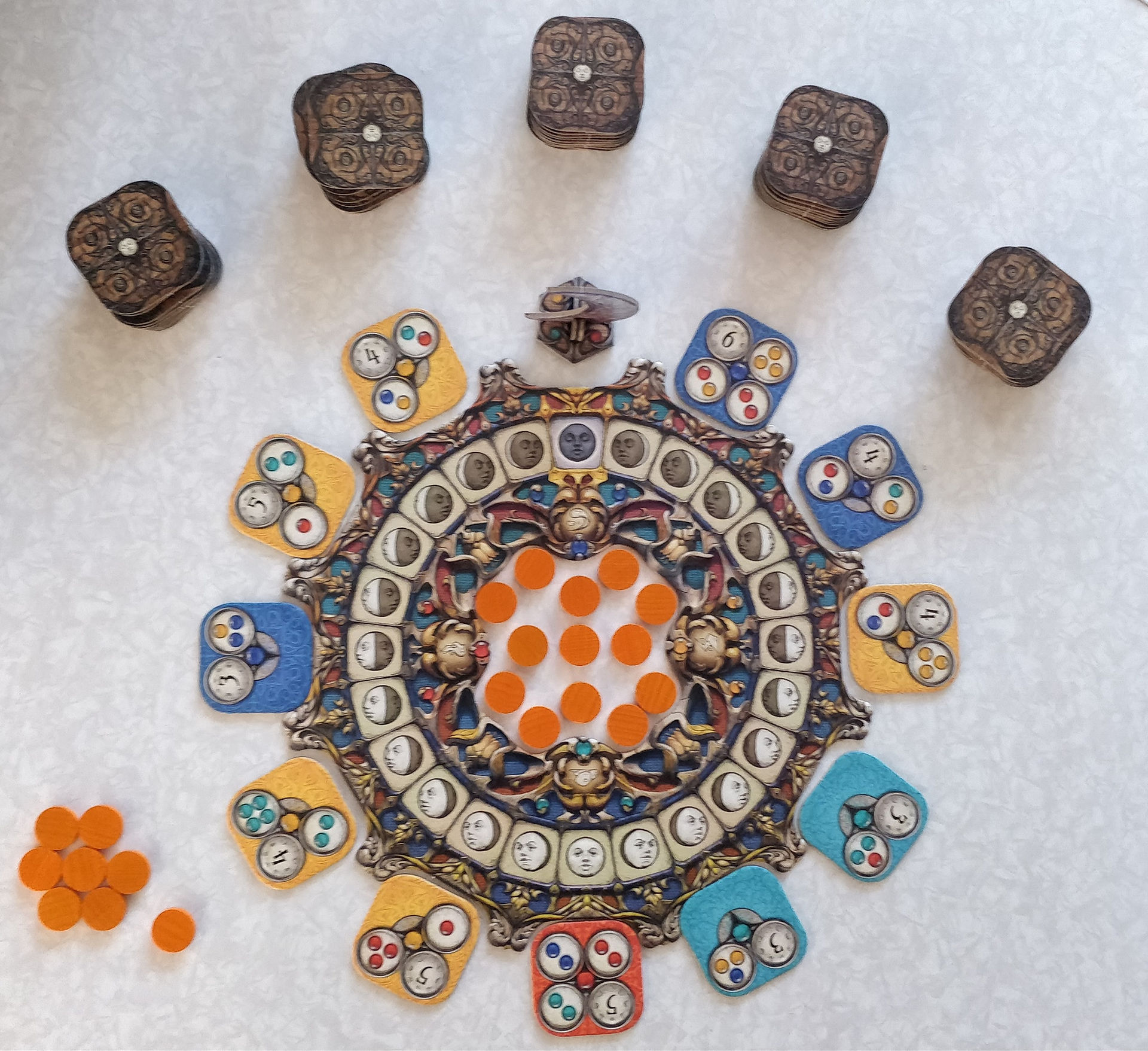Eleven is live (The round goddess)
Update: Eleven: Football Manager Board Game has launched on Gamefound and the campaign will run for 20 days. You may back the base game, and then select any of the available expansions as an add-on.
Our preview post below was published on September 3.
Eleven: Football Manager Board Game is a 1-4 player solo and competitive economic game inspired by the Football Manager video game. Your goal is to help your football team rise to the top of its league. It will launch on Gamefound on September 7.

Eleven is a new iteration of designer Thomas Jansen's previous game, Club Stories. Since the current rulebook hasn't been revealed yet, we will base our preview on the rules of Club Stories. The solo game consists of a series of scenarios, each with a different objective that the player has to achieve.
The four tracks on your player board mark your weekly income, fan popularity, team morale, and fitness. Each scenario specifies your starting stats and amount of money. In the first scenario, you start with three directors, a scout and a coach. The directors open up a network of sponsors and staff that you will be able to attract and hire over the course of the game. The scenario also gives you a set of season goals which, if completed, will gain you respect points as a manager. If your team morale and fitness ever go down to 1, you are fired and lose the game.
The stadium is directly linked with the income track. When a stadium block is filled with new crowds your income goes up, whereas you lose money when you have empty seats. A turn in the game consists of 6 phases: Board Meeting, Plan Actions, Select Players and Tactics, Match, Match Consequences, and Housekeeping.

In the Board Meeting phase, you will draw a card from the Board Meeting deck. The card will present you with a dilemma, and the decision depends on a die roll result that you compare against the three director cards. The dominant colour determines the outcome. Sometimes the directors ask you to decide, or you may choose to influence their decision by rolling extra dice. In the Plan Actions phase, you place your available dice on the Schedule card. You can then perform actions like hiring staff, attracting sponsors, buying players or learn new tactics. New staff and players will cost you money. When you buy a new player, you will place him in the field according to his position (attack, defense, or midfield). You may also execute the actions provided by your staff cards and level them up. If you choose to do personal talks, you can try to have a chat with your team or the fans in order to boost the team morale or your own popularity. This depends on a die roll result.
In the Select Players and Tactics phase, you decide which players to use in the next match and arrange them in the field. You may also choose to use a tactics card before the match. Then the actual match begins: every player has a skill token which shows their power. You shuffle the Opponent deck, reveal the top card, and compare the opponent's players with yours in every line. The highest value wins, but when players have the same value, the defender wins. When comparing lines, you can choose which player to compare with who. If you win the match, you gain 3 league points. If it's a draw you get one point, and if you lose, none. You will then roll a die to determine the match consequences depending on the outcome. In the Housekeeping phase, you make preparations for the next round.
Both your players and the opponent's players may level up. They may also get injured or suspended. If your league ends up with less than -3 points, you lose the game. If you manage to fulfill the scenario goal, you are ready to proceed to the next one.

Portal seem to be doing their best to sabotage their own game. First they launch it with six expansions as add ons @ $20 each for 50ish cards making it $180 plus shipping for everything and there is no all in pledge coming. Jump forward a day, after hundreds of complaints and only a 10% take up from followers, there is an all in pledge for $128 plus shipping. It's funny how thet couldn't possibly do it one day and then..... a miracle! It just smacks of them thinking they could get away with some daft pricing and blame it on the Chinese / Shipping!
There are some structural problems with the game as well, which hopefully they will address…
I don't have to watch any reviews or anything. I KNOW I want this! 😁
For those who want some more details, Portal Games have put up a video on You Tube of a teach and playthrough on TTS......:)
Just from the theme, I wasn't too intrigued, but it looks and sounds kind of interesting, actually.